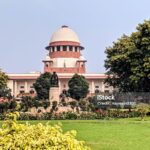
MUTATION OF REVENUE REVENUE RECORDS DO NOT CONFER OWNERSHIP TITTLE
.the Court reiterated that while considering rejection of a plaint under Order VII Rule 11(d) CPC (suit barred by law), only the averments in the plaint should be examined — not the defence. Hence, the High Court erred in going beyond the plaint to conclude that the suit was time-barred.
Mutation proceedings do not confer title:
The Court emphasized that mutation entries are only for fiscal purposes and do not confer ownership rights. Therefore, merely because the defendants' names were mutated earlier did not extinguish the plaintiffs’ claim to ownership.
land aquisition-computation of compensation
Land Acquisition, Rehabilitation and Resettlement Act, 2013 prescribes a statutory formula to determine the “market value” — by reference to average sale price of similar lands in the nearest vicinity, based on registered sale deeds of the preceding three years, and applying the “one-half of highest sale deeds” rule.
Because the Reference Court’s approach adhered to statutory requirements, the Supreme Court refused to allow the High Court to substitute its own methodology.

Conducting trials in two High Courts would cause duplication of evidence, inconsistent judgments, and unnecessary waste of judicial time.
To avoid multiplicity, save judicial time, and ensure consistent adjudication, it was expedient to transfer the Delhi Suit to the Bombay High Court, where the first suit is already pending.

the question is as to whether the doctors, practicing allopathy and indigenous medicine; like Ayurveda, Homeopathy, Unani etc. can be treated equally for the purpose of determining service conditions; herein, specifically retirement age..
Further, casualty, critical care, trauma management and the emergency interventional procedures are dealt with by allopathy doctors and not by AYUSH doctors. These aspects according to us, puts the former in a different class altogether, who can be classified differently for service conditions. This has a reasonable nexus with the object sought to be achieved, i.e.: the sufficiency of qualified and experienced MBBS doctors with better pay scales and longer service, both.

The advertisement in this case clearly indicated that the number of posts “may be increased or decreased” (from twelve) and thus signalled that the waiting list mechanism was intended by the appointing authority.
Therefore the Court found that the termination was unjustified — the High Court erred in not giving effect to the rider in the advertisement and the precedent of waiting list appointments beyond the exact number of notified vacancies.

‘S’ had no role in the quarrel between the two families. He merely tried to stop the scuffle and restore peace. The Court described him as an innocent victim, killed without provocation or justification.
The blow was deliberate and aimed at a vital part of the body, demonstrating sufficient awareness of its deadly consequence.

PW-5 said it happened in front of his house near Narsingh’s house.
The FIR, however, stated it began near the hut of Jagya (PW-3).
This inconsistency struck at the root of the prosecution’s case.
though a cousin of the deceased, made no effort to save or assist Ramesh when attacked, and showed indifference afterward. Such unnatural conduct made his story unbelievable.Since the witnesses gave different and contradictory accounts of where and how the fight started, the entire genesis of the prosecution version became doubtful.

The Supreme Court reaffirmed that an agreement to sell does not transfer ownership or create any interest in the property.
Nature of "Agreement to Sell" under Law: The Supreme Court reaffirmed that an agreement to sell does not transfer ownership or create any interest in the property. Only a registered sale deed conveys ownership.

Absorbing the respondent would unfairly deprive future candidates.
No vested right from wait list:
A candidate in the waiting or reserved panel has no legal right to appointment unless any selected candidate fails to join the post during the life of that selection list. Once all selected candidates join, the wait list stands exhausted.
A wait list is not a source of permanent recruitment.